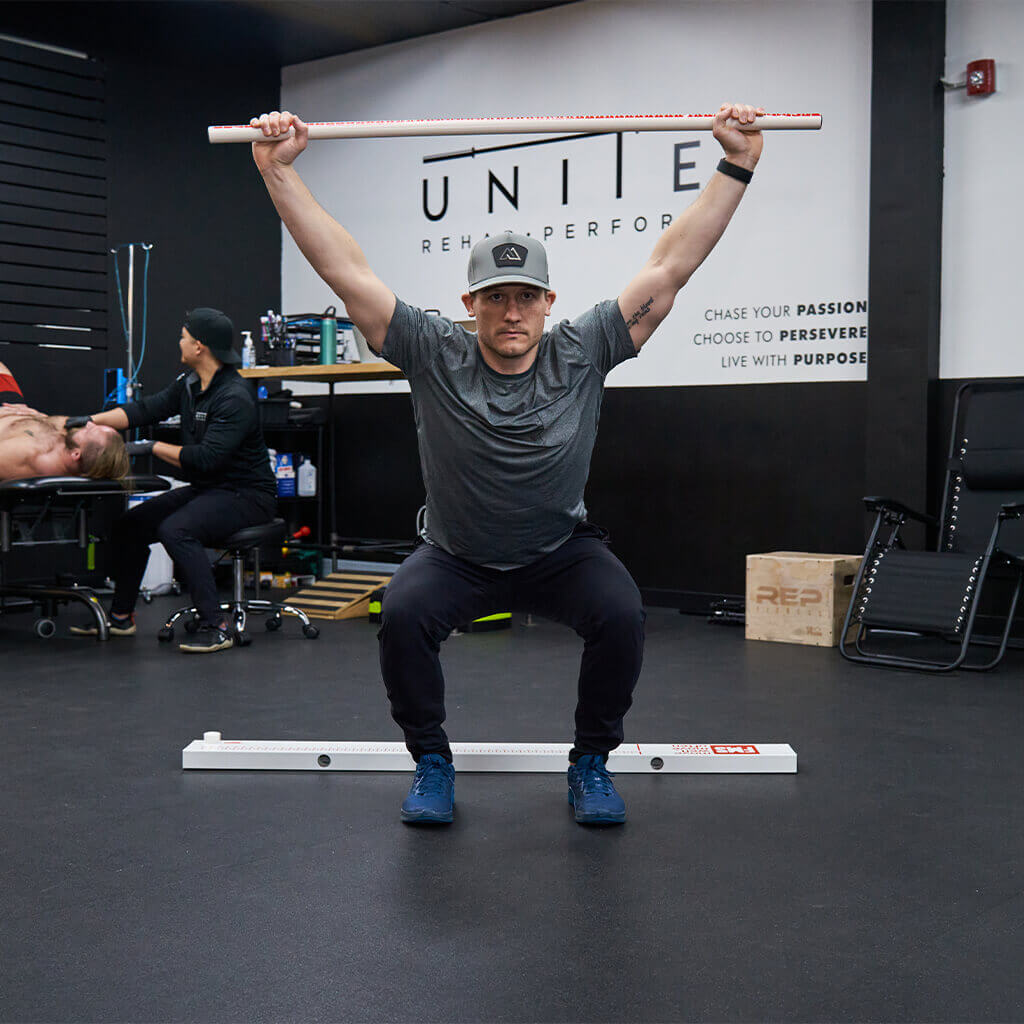Functional Movement Screen (FMS)
This thorough but quick screen allows your performance physical therapist to see how you are moving as an athlete. The FMS has been shown to identify movement faults and side-versus-side discrepancies that, if addressed, can stop injuries before they happen. If you are already dealing with an injury, the FMS is helpful to identify what movements are causing pain.
- Physical therapy is one of the last remaining medical fields that tends to act REACTIVELY instead of PROACTIVELY. The FMS is our tool to change that because we can identify and correct faults before they turn into injuries.
- Completed in less than 10 minutes, this screen takes you through 7 functional movements and is scored based on your quality of movement and whether or not you are experiencing pain in any particular position.
- Research shows that athletes who score 17 or less out of a possible 21 are 4.7x more likely to sustain an injury in the lower extremities.
- One of the best features of this screen is the ability to identify faults that need to be addressed in your physical therapy and/or performance training programs. This test can easily be replicated to determine if significant improvements have been made at a future date.
Selective Functional Movement Assessment (SFMA)
This screen is performed only by trained medical professionals. The SFMA is a “movement based diagnostic system which systematically finds the cause of pain – not just the source – by logically breaking down dysfunctional movement patterns in a structured, repeatable assessment.”
- Your physical therapist will ask you to perform 7 top tier movements. If any of those movements are painful or do not meet the requirements, you will go through further break-out movements to identify the cause of your dysfunction.
- This detailed analysis is performed in a true head-to-toe fashion. No matter your injury, we believe the best way to understand how your body moves is by assessing everything. Most importantly, you receive thorough and effective treatment.
-
To put it simply, we categorize the “true cause of dysfunction” into 1 of 3 categories:
1. Tissue Extensibility Dysfunction
2. Joint Mobility Dysfunction
3. Stability/Motor Control Issue - Going through this assessment takes the guesswork out of the equation and saves you time in your rehab journey! More importantly, it creates a comprehensive picture of the athlete we are treating.
Ready to get started or want to discuss your options for sports physical therapy with us? Contact us for physical therapy at UNITE.rehab.perform! We are conveniently located in Thornton, CO and Denver Metro area!

